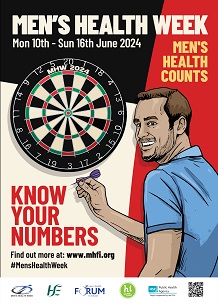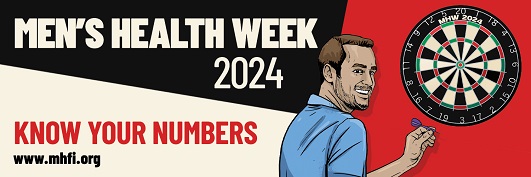Take the ‘Agent Mann’ Challenge 2024
Men’s health on the island of Ireland is unnecessarily poor, but it is not a lost cause. There are many free, simple and practical things that can be done to improve it. But what are these?
To support Men’s Health Week in 2022, a team of students from the Game Design Degree Course in Technological University Dublin developed a ‘Serious Game’ - focusing on male health - that men and boys can play online. We're offering you another chance to play it again this year.
In this retro-style arcade game, the player is invited to take on the character of ‘Agent Mann’ - a spy who is given the mission of tracking down and securing a series of dossiers containing high level ‘Intel’ on how to improve men’s health.
To succeed in his quest, Agent Mann has to navigate through various settings to locate and collect all of the dossiers. Along the way, he has to learn how to move around in his environment and to use some of the gadgets available to him. But of course, danger is never far away, and his path is blocked by the henchmen of his nemesis [Mr O’Bese] who try to prevent him from uncovering this vital information.
Why not be an ‘Action Man’ yourself and …
1. Take on the role of Agent Mann.
2. Find and secure all of the seven dossiers.
3. Memorise what’s in them.
4. Use this information to improve the health of men both now and in the future.
Try it out at: https://mhfi.org/mhw/mhw-2024.html#AgentMann


